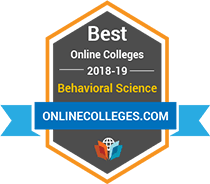Colleges for Behavioral Science
We’ve done the research and created comprehensive guides to online schools for behavioral science. Continue below and dive into the details on behavioral science degree programs, tuition and fees, related career outlooks, employable skills and much more.
Nov 17, 2017 | By OnlineColleges Editors
